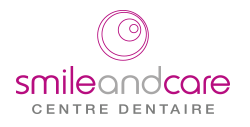Interview
« Every patient is unique. »
Dr Karim Abdelghafar, dentist at Smile and Care
Dr Karim Abdelghafar is open about his passion for dentistry. With a Doctor of Medicine in Dentistry (DMD) degree from the University of Geneva, he shares his thoughts on his profession. Interview.
Why did you choose to go into dentistry?
Dentistry combines science, people, and manual skills. Every patient is a new challenge for me, and every day, I’m filled with gratitude for – and joy from – practicing this profession. In fact, I’ve made this choice twice in my career (smiles): the first time was when I was studying dentistry at Cairo University, where I did a Master’s degree in Oral Pathology, a specialty dealing with oral tumours.
Then in 2015, I moved to Geneva for family reasons. While I could have chosen another professional field, I opted instead to redo the entire dental training course at the Geneva School of Dental Medicine, earning my federal diploma in 2019. In addition to working as a dentist at Smile and Care, I am also a lecturer at the University of Geneva where I am doing a doctoral degree in conservative dental treatments; these consist in removing any caries while preserving as much healthy dental material as possible.
What kind of treatments do you offer?
I am a General Dentist. I provide general dental care, ranging from cavity treatment to more aesthetic care requiring fixed or removable prostheses, to pedodontics (paediatric dental treatment), or endodontics (root canal treatment). The majority of treatments are aesthetic ones. Replacing old fillings with resin composites, for example, can improve a patient’s oral health while offering a more aesthetic result.
In your opinion, what qualities are necessary to do this job well?
Swiss dentistry follows quality guidelines, and protocols are rigorously followed. One must be meticulous and have a lot of patience because each patient is unique. To understand the problem and bring the appropriate solution, thorough analysis is crucial. Obviously, scientific knowledge is essential – the patient has to feel that the treatment plan we’re offering is the most reliable and the best-suited to his situation. Pedagogy and empathy are also essential when it comes to explaining things to patients in simple terms. Indeed, my job is to make my patients understand that ‘giving a smile back’ isn’t just a slogan!
Is your job different during dental emergencies?
Whether during the week or at the weekend, emergency care aims to make a diagnosis and – mainly – manage pain and infection. We have to be fast, efficient. Each patient is a new challenge, and there’s no advance planning! Managing these situations requires experience, concentration, and meticulousness.
Can you think of a patient who presented a particular challenge for you?
Yes, absolutely! On Christmas Eve, a patient came to the Eaux-Vives centre. In her late sixties, she had somewhat neglected her dental care and urgently needed a repair on her removable prosthesis. Smile and Care has been collaborating for many years now with the Allinlab laboratory; I contacted them immediately to discuss the patient’s situation. We communicated very well – and in fact, this is something that isn’t often discussed: communication between a dentist and the laboratory is crucial! Together, we were able to find a temporary solution for the holiday season.
After the holidays, I fitted her with a permanent prosthesis. She cried about it, telling me she felt highly confident in our work and her treatment plan. Following this episode, I’ve watched how this patient – who returns regularly for check-ups – has gained confidence, both personally and professionally.
What about technology, how does it influence treatment?
The intraoral scanner is clearly a technological advance. Today, progress in dentistry is just amazing, and enables greater precision. That said, a tool is only as good as the practitioner using it!
What are your professional development goals?
I’ll have finished by doctorate in two years’ time. I believe a good dentist should share with his or her peers and colleagues. Our practice is multidisciplinary; it’s by sharing that we develop our knowledge. Our model is based on excellence in care, materials, and communication between specialists. We find the best solutions together.







